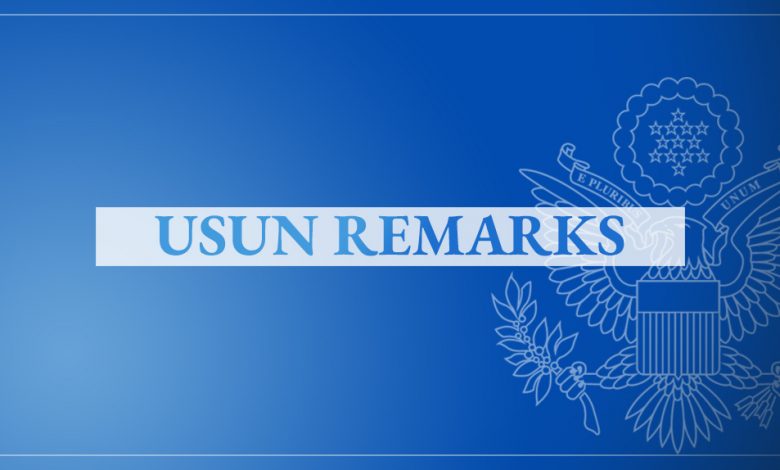Remarks at the ECOSOC High Level Political Forum on funding our crisis response and investing in the SDGs

Ambassador Lisa Carty
US Representative for Economic and Social Affairs
New-York, New-York
July 10, 2023
AS DELIVERED
Thank you, Mr. Chair, and thank you to today’s excellent panelists.
The United States is committed to a comprehensive approach to restoring and accelerating progress towards the 17 Sustainable Development Goals and fully implementing the 2030 Agenda, which is centered on a determination to uphold the inherent dignity of every human being.
President Biden has reiterated this commitment to the SDGs and to re-igniting momentum towards their achievement, including through the use of broader tools such as catalytic finance and integrated humanitarian, development and peacebuilding responses.
In service of this goal, the United States prides itself on being the largest single donor of official development assistance (ODA), having disbursed nearly $55 billion last year, an all-time high and 22 percent of total world ODA. We are increasingly focused on using our aid to enable greater private capital investment for development. We value inclusive and locally led partnerships, transparency and accountability, and a focus on results.
In addition, we are increasing our commitment to improving the multilateral debt restructuring process, including efforts to provide debt relief to countries in distress through the G20 Common Framework and the Global Sovereign Debt Roundtable. We support efforts to make debt more sustainable, for example by having creditors implement climate-resilient debt clauses and by exploring efforts to swap private debt for investments in resilience or development goals.
We use a wide range of instruments to mobilize domestic resources and private investment. And we’re doing this in areas that have historically been underinvested, such as adaptation finance.
We must also ensure that global institutions, including international financial institutions, are able to support the implementation of the 2030 Agenda. That is why the further development of the multilateral development banks has top priority.
At the spring meetings, we made progress on the further development of the World Bank, laying a solid foundation for further progress. First steps to realign the World Bank’s business model are expected to increase annual lending by about $5 billion per year over the next decade. We seek to build on this momentum to strengthen the capacity of multilateral development banks to address challenges such as climate change, pandemics, and fragility and conflict, as essential to achieving their core goals of reducing poverty and promoting shared prosperity.
One of the Biden administration’s top priorities is to work closely with the US Congress to lend the IMF an additional $21 billion to support concessional lending through the Poverty Reduction and Growth Trust and the new Resilience and Sustainability Trust .
Funding alone will not achieve our shared goals, but we know it is vital to help partner countries achieve their development goals and leave no one behind.
Thank you very much.
###


